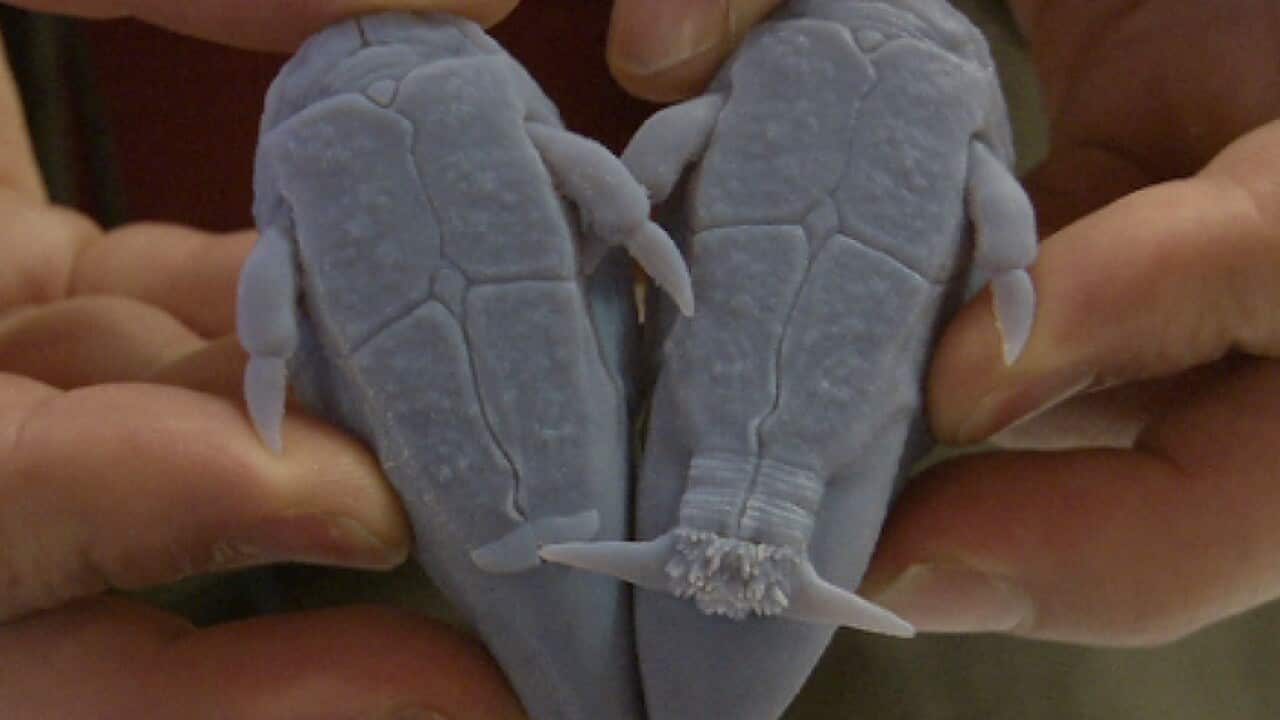(Transcript from World News Radio)
Birds do it, bees do it.... and now Australian scientists have discovered where "it" all started.
It seems the origin of sex is a fishy story, captured in rock nearly 400 million years ago!
Karen Ashford has the story
It turns out the earliest sex act might not be as sexy as we'd like to think.
"They couldn't have done it in a missionary position - the very first act of copulation was done sideways, square dance style."
Square dance music (fades out)
Professor John Long, a palaeontologist from Flinders University, has come up with a whole new theory on the origin of sex - tracing back the first intercourse to a pair of tiny fish in a chilly Scottish lake.
"Copulation, the intimate act of sexual intimacy to reproduce was something we always think of in human terms, mammalian terms, but sharks copulate, and fossil fish called placoderms were the very first type of animals to invent this kind of behaviour."
Dr Joseph Milton, from the Australian Science Media Centre says the findings, published in the prestigious journal Nature, reveal sex is twice as old as the first dinosaurs.
"It all started much earlier in evolutionary history than we thought. In fact the world's first lovers were a type of 385 million year old Scottish armoured fish called an antiarch which copulated in a bizarre, square-dance like display."
Antiarchs are the oldest members of the placoderm group, and have provided another scientific first.
It's believed they're the pioneers of gender in vertebrate evolution, displaying distinct male and female sexual organs.
Antiarch fossils are quite common, but the discovery of their ground breaking procreation practices is one Professor Long says happened by pure chance.
"This is an amazing story that started with a discovery that was kind of cryptic and mysterious. I was working in Tallinn in Estonia late last year in a lab with an 85 year old palaeontologist that had the riches of the Soviet Union's palaeontology collections at her disposal and she gave me a box with a bunch of bones in it; tiny bones, a centimetre or two long and in that box I found one plate and it had a strange grooved bone attached to it and I didn't know what it was. I've studied placoderms all my life, for over 30 years and I couldn't figure out what it was. And then later that day the penny dropped (realisation occurred) this was a clasper, a reproductive organ, a sex organ, and it was the oldest one and the most primitive one yet found on the planet."
Professor Long says the move from external spawning to internal fertilisation with young being carried inside the female is, significantly, the very start of behaviours that created human beings.
"Placoderms were thought to be a dead end group with no relevance to modern living animals - recently though, discoveries like this and others recently published show placoderms are deeply rooted in the ancestry of all of us and so by studying them and their anatomy we're learning more about our own deep, distant evolution.'
It appears the first sex didn't last long, with placoderms losing the ability to copulate, only to re-evolve it later on ... another mystery science is yet to put to bed.

